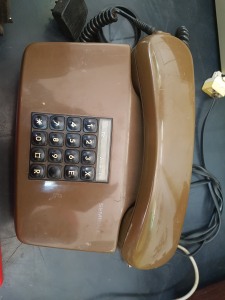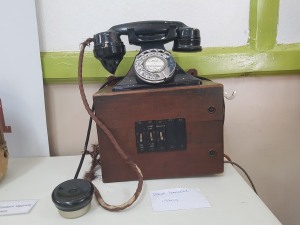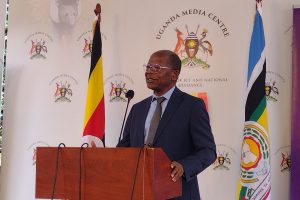this generation would have cursed being born had they been in the 21st Century and am talking of the 1950s and 60s where owning a phone (landline or mobile) was a dream only achievable by the rich.

Back in the day when Post Office ruled the communication chain, much of the information was transmitted using P.O.Box addresses (which the new generation is familiar with since they are used in letter writting) where one would write a letter, post it and wait in vain for a response which would take weeks or months untill the reciver got the mail, another week or month untill the sender would get a reply which was so time consuming and in terms of announcing events like wedding invitation or burrial, opne would get the message a little too late but all that changed when Uganda introduced landlines which were of course scares and expensive.

On calling, one would take the long walk to where the phone was located (at the Post Office usually) pay the operator to connect to the other end and wait for when the operator the other side connects to the person at the receiving end who should have known that he was to receive a call.

At an event where UBC showcased some of these old technologies, i was able to get some explantion from the technical expert.
“you would ask the operator that you wanted to conncet to a particular line (either long line ie different radius eg country or short line ie same district) and the operatoer would dial, have a call transffered to the reciver and then the opperator would unplug a pin similar to an audio jack and plug to another line which would hinder calls coming in on that particular line on the switchboard which would make the line busy”. he said.

This was so expensive that one only had to call with strong reasons and sometimes the caler and reciver would notify each other on the exact time one would call in order not to miss the call-remember this was a phone stationed at a particular place-and they would run to where the phone was, wait until the operator informed him that his call had come though.
For the rich, there were what they would term as collective calls whereby the caller would say that the person they are calling would meet the bill. in such an arrangement, the operator would get in touch to confirm payment of charges. a positive response made the operator connect them.

As technology evolved, landlines picked up speed and slowly by slowly companies had the luxury of owning them since they were expensive for an ordinary Ugandan problem is they had no security feature so anyone would access and call if the person responsible for it was not within eye contact with the phone however later modules came with padlock which hindered a person from rotating the dial to a certain extent hence making it hard for a caller to put in required numbers to make a call. better landline modules were designed.
looking back at that, I thing we are all glad a smartphone came in handy.
![]()




